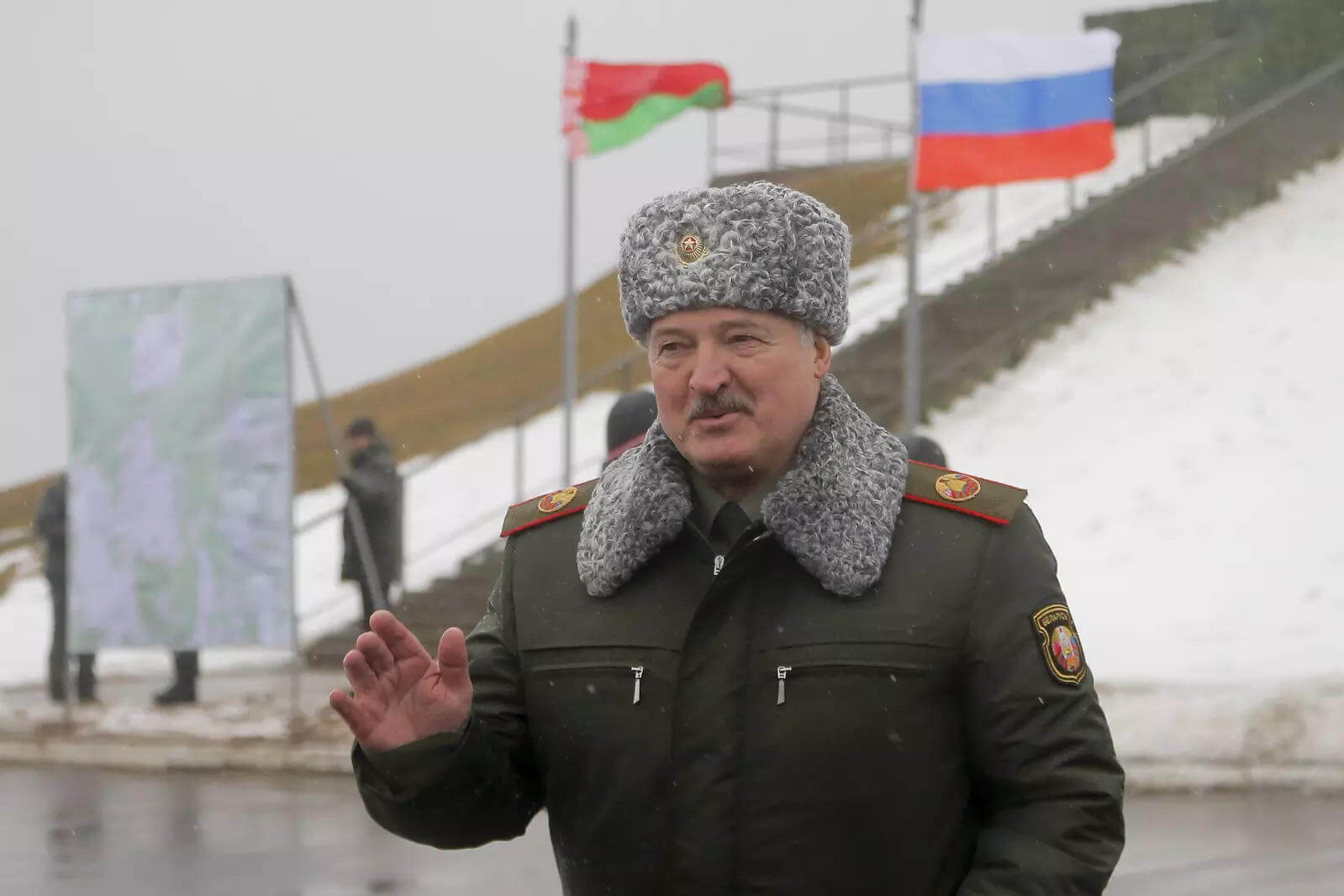Belarus on Sunday voted to renounce its non-nuclear status amid the ongoing Russian invasion of Ukraine, despite the West urging Minsk against making such a move. It paves the way for Russia to deploy nuclear weapons in Belarus for the first time since it gave them up following the collapse of the Soviet Union in 1991.
The Belarusian Election Commission said that the referendum saw a voter turnout of 78.63%, of which 65% voted for Belarus to amend its constitution and change its non-nuclear status. The amendments are expected to come into force immediately, as they need to receive just 50% of the vote to be approved.
The amendments will also allow Belarus to permit Russian troops to remain on its territory indefinitely. Furthermore, it grants immunity for former officials accused of committing crimes during their terms in office.
Speaking at a polling station on Sunday, Belarusian President Alexander Lukashenko said he has been given the authority by the people to ask Russia to deploy nuclear weapons in the country. “If you [the West] transfer nuclear weapons to Poland or Lithuania, to our borders, then I will turn to Putin to return the nuclear weapons that I gave away without any conditions,” Lukashenko added, referring to the North Atlantic Treaty Organization’s (NATO) eastward expansion.

Belarus’ decision to abandon its non-nuclear status follows Russian President Vladimir Putin’s order on Sunday to put Russia’s nuclear deterrent forces on high alert as a response to the crippling sanctions imposed by the West. Saying that the “highest-ranking officials of leading NATO countries are allowing themselves to make aggressive statements in relation to our country,” Putin ordered his defence officials to “put [nuclear] deterrent forces on special combat duty.”
The United States and European countries have imposed severe economic sanctions on Russia, including removing several Russian banks from SWIFT, an international payments system used by over 11,000 financial institutions and companies across 200 countries. The move will disconnect Russian banks from the international financial system.
BREAKING: Belarus announces that today's referendum approving a new constitution passes as the country renounces its non-nuclear status. This would allow for the deployment of Russian nuclear weapons from Belarus.
— Brian Tyler Cohen (@briantylercohen) February 28, 2022
Over the last few months, Belarus has hosted thousands of Russian troops and Moscow and Minsk have conducted joint military drills not long before Russia’s invasion of Ukraine. Moreover, following Russia’s assault against Ukraine, Russian troops invaded Ukraine from Belarus in the north, part of Moscow’s strategy to take control of the Ukrainian capital Kyiv.
In 2020, Russia answered Belarus’ call for help by providing for loans to help counter Western sanctions that were imposed on Lukashenko and other high-ranking Belarusian officials for committing widespread human rights abuses. Since then, both countries have jointly opposed Western intervention in Ukraine and warned against NATO admitting Kyiv as a member.

